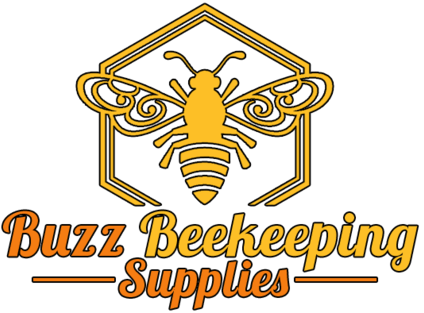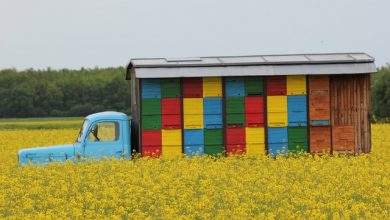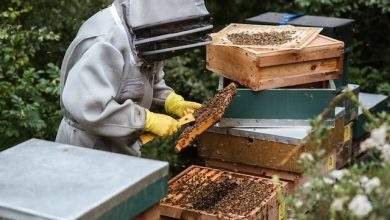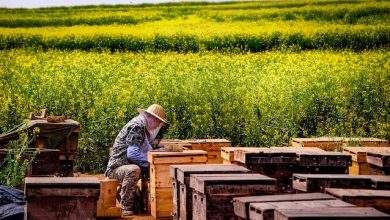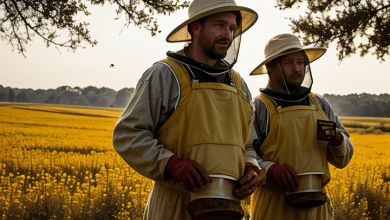Beekeeping Supplies Wyoming
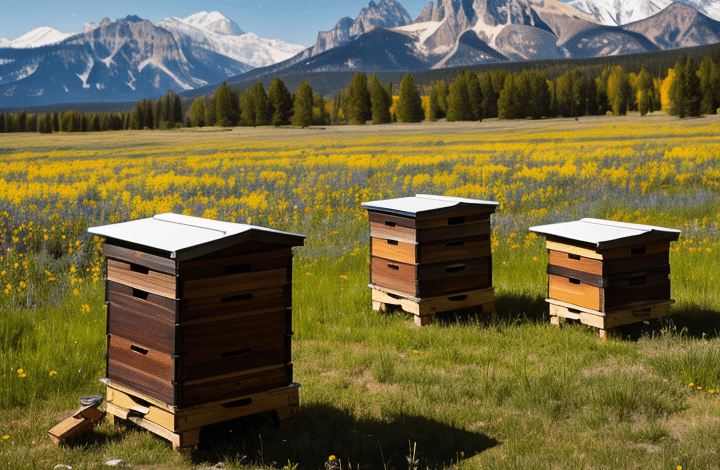
Beekeeping has become increasingly popular in Wyoming as more people are becoming aware of the importance of bees in pollinating crops and maintaining ecosystems. Whether you’re a seasoned beekeeper or just starting out, having the right beekeeping supplies is essential for the health and productivity of your hives.
In this article, we will explore the various beekeeping supplies available in Wyoming, from hive equipment to resources for beekeeping enthusiasts.
No matter where you are looking for beekeeping supplies in Wyoming, we’ve got you covered.
Beekeeping in Wyoming
Listed as number 36 in honey production in the US, beekeeping has a long-standing tradition in the state of Wyoming, with its vast open spaces and diverse flora creating an ideal environment for bee colonies.
For centuries, beekeepers in Wyoming have played a crucial role in the pollination of crops and the production of honey, while also contributing to the local ecosystem.
Essential Equipment for Beekeepers in Wyoming
Whether you are just starting out or have years of experience, having the right equipment is crucial for the success of your beekeeping endeavor.
Beehive Components
When it comes to hive equipment, there are several essentials that every beekeeper in Wyoming needs to have:
- Hive Boxes: In Wyoming, beekeepers primarily use Langstroth hives, which consist of stackable wooden boxes. These boxes provide a home for the bees and serve as a framework for their honeycomb construction.
- Frames: Within each hive box, frames are installed to support the honeycomb structure. These frames can be easily removed for inspection and honey extraction, making them an essential part of the beekeeper’s toolkit.
- Bottom Boards: The hive’s bottom board serves as the base upon which the hive rests. It plays a crucial role in providing ventilation, regulating temperature, and protecting the hive against pests, making it an essential component for beekeepers in Wyoming.
- Inner Covers and Outer Covers: Inner covers separate the topmost hive box from the roof and assist in providing insulation, while outer covers provide protection from the elements, such as rain and snow. These covers are essential for maintaining the integrity and safety of the beehive in Wyoming’s ever-changing weather conditions.
By ensuring that you have these essential beehive components, you can set yourself up for success in beekeeping in Wyoming. Remember, having the right equipment is the first step towards cultivating a thriving beekeeping operation in this unique region.
Essential Protective Clothing for Beekeepers
Beekeeping is a fascinating hobby and a crucial practice for maintaining healthy bee populations, but it comes with its fair share of risks. One such risk is the possibility of bee stings, which can cause allergic reactions in some individuals. That’s why protective clothing is an essential part of a beekeeper’s arsenal.
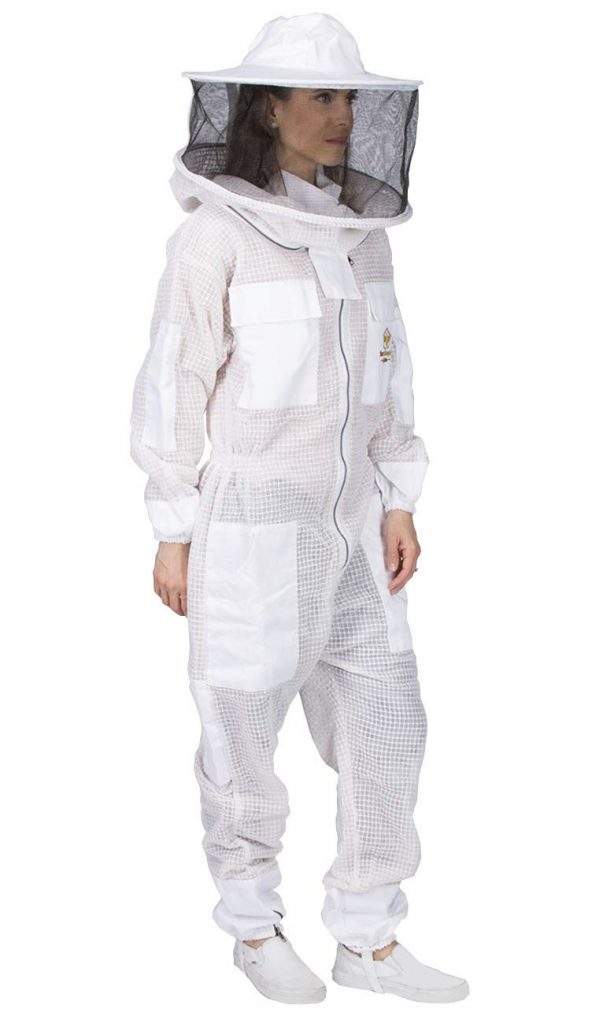
- Bee Suit: Full-Body Protection: One of the most common pieces of protective clothing worn by beekeepers is the bee suit. This full-body garment is typically made of light-colored, thick fabric that provides protection against bee stings. In Wyoming, beekeepers have the option of choosing between traditional canvas beekeeping suits and modern ventilated bee suits, both of which offer reliable protection.
- Gloves: Hand Protection: Beekeeping gloves are another crucial component of a beekeeper’s protective gear. These gloves are usually made of leather or nitrile and are designed to shield the hands from bee stings while still allowing for dexterity. In Wyoming, beekeepers can choose between goatskin bee gloves and cowhide bee gloves, both of which provide excellent protection and comfort during hive inspections.
- Beekeeping Boots: Foot and Ankle Protection: To protect the feet and ankles from bee stings, as well as potential hazards on the ground, beekeepers in Wyoming wear high-top boots made of rubber or leather. These boots provide an extra layer of defense against bee stings and ensure that beekeepers can work around their hives with confidence.
- Veil: Face Protection: A beekeeper’s veil is an indispensable part of their protective gear. This piece of equipment not only prevents bees from accessing the face but also provides clear visibility for the beekeeper during hive inspections. It is essential to ensure that the veil is securely attached to the bee suit or jacket to provide maximum protection.
- Combo Packs: Convenience and Savings: Many suppliers offer combo packs that include a bee suit or jacket, gloves, and a veil at a discounted price. These combo packs offer convenience and savings for beekeepers, making it easier to acquire all the essential protective clothing in one go.
Please note: Your beekeeping suit or beekeeping jacket should come with a veil included.
By investing in high-quality bee suits, gloves, boots, and veils, beekeepers can protect themselves from bee stings and continue their important work with confidence.
Essential Tools for Beekeeping
Beekeeping requires essential tools to ensure the well-being and productivity of honeybee colonies. These tools not only aid in the maintenance of the hive but also contribute to the safety of the beekeeper. Understanding the significance of each tool and how it is utilized can significantly improve the overall beekeeping experience.
- Smoker: A smoker is an indispensable tool for any beekeeper. It is used to emit cool smoke into the hive, which effectively calms the bees during inspections. This is especially beneficial when working with potentially defensive or agitated colonies. The cool smoke disrupts the bees’ communication and feeding, reducing the likelihood of defensive behavior.
- Hive Tool: A hive tool is a versatile instrument that is essential for prying apart hive components, scraping excess propolis or wax, and inspecting hive frames. It is a staple tool in any beekeeper’s arsenal, facilitating the manipulation and management of hive elements.
- Bee Brush: The gentle handling of bees is crucial during hive inspections, and a soft-bristled bee brush is utilized for this purpose. It is employed to gently remove bees from frame tops, walls, or other surfaces, minimizing harm to the bees while ensuring a clear view for the beekeeper.
- Queen Marking Tools: Identifying the queen bee within the hive is a fundamental task for beekeepers. The queen is often marked with a small dot of non-toxic paint to aid in her identification. Queen marking tools, such as special markers or cages, contribute to the precision and ease of this essential task.
- Hive Feeder: During times when natural forage is scarce, providing essential nutrients to the bees becomes crucial for their well-being and survival. A hive feeder allows beekeepers to offer sugar water or pollen substitutes to their colonies, serving as a backup resource, particularly during long winters or dry periods. Investing in a high-quality hive feeder can significantly contribute to maintaining healthy hives
- Extraction Equipment: Beekeeping includes extracting honey from the hive. Extracting equipment includes honey extractors, uncapping knives, and filters. Extracting the honey from the comb where it is stored is a delicate process that requires the right equipment to properly extract the honey.
State Association
The state association is the Wyoming Beekeepers Association.
One of the primary objectives of the Wyoming Beekeepers Association is to prioritize education and keep its members updated with the latest advancements in beekeeping practices.
Wyoming Bee College
The Wyoming Bee College was established with the aim of providing education and resources to both experienced beekeepers and those new to the hobby. It serves as a platform to share and exchange knowledge, techniques, and innovations in the field of beekeeping. This collaborative event brings together expert speakers, enthusiasts, and industry professionals, creating a vibrant and supportive network for beekeepers in Wyoming and beyond.
Buying Bees in Wyoming
Where to buy bees and nucs in Wyoming?
One of the best places to purchase queen bees, packaged bees and nucleus hives (nucs) is your local bee club. Engaging with a beekeeping club can greatly enhance your knowledge, skills, and overall experience as a beekeeper.
Here are two local bee clubs in Wyoming:
- NE Wyoming Beekeepers
- Southwest Wyoming Beekeepers Association
The Benefits of Joining a Beekeeping Club
- Networking Opportunities
Joining a beekeeping club opens up valuable networking opportunities for individuals with a passion for beekeeping. It allows them to connect with like-minded individuals who share a common interest in caring for bees and maintaining a healthy hive.
By interacting with fellow beekeepers, members can exchange tips, experiences, and knowledge, creating a supportive network within the beekeeping community.
- Expanding Knowledge and Education
Beekeeping clubs offer a wealth of learning opportunities through informative meetings, workshops, and educational events. These gatherings provide members with access to valuable insights and expertise from experienced beekeepers.
The educational aspect of club membership enables individuals to expand their understanding of beekeeping practices, environmental impact, and sustainable beekeeping methods.
- Support and Mentorship
One of the most significant advantages of joining a beekeeping club is the provision of support and mentorship from seasoned beekeepers. Members can seek guidance, ask questions, and receive valuable tips from those with years of experience in beekeeping.
This mentorship fosters a supportive environment where individuals can seek advice and assistance whenever needed, ultimately contributing to their success as beekeepers.
- Access to Resources
Beekeeping clubs often provide access to essential resources, including beekeeping libraries, equipment rentals, and bulk purchasing options. These resources enable members to enhance their beekeeping endeavors, access valuable literature and information, and acquire necessary equipment and supplies at discounted rates.
Additionally, some clubs may offer access to apiary sites, providing members with space to maintain their bee colonies and practice beekeeping techniques.
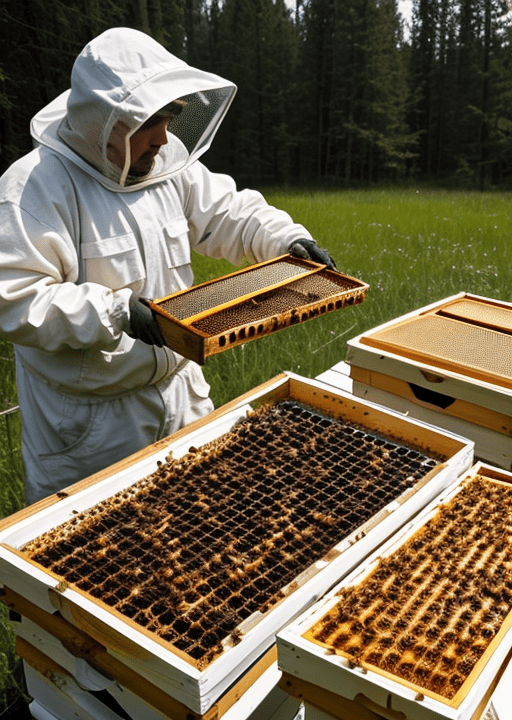
- Social Engagement
Participating in club activities allows beekeepers to engage with a community of like-minded individuals, fostering friendships and connections beyond the realm of beekeeping. Club members have the opportunity to participate in social events, outings, and gatherings, creating a sense of community and camaraderie that extends beyond the shared interest in beekeeping.
Wyoming Beekeeping Laws
Here are some of the Wyoming beekeeping laws that every aspiring and experienced beekeeper should be familiar with.
– Beekeeping Registration:
- In the state of Wyoming, all beekeepers are required to register their apiaries with the Wyoming Department of Agriculture.
- Registration helps the authorities maintain accurate records of beekeeping operations, track disease outbreaks, and perform inspections to ensure compliance with health and safety standards.
- The registration process usually involves providing basic information about the beekeeper, such as contact details, location of the apiary, and estimated number of hives.
– Apiary Location:
- Wyoming beekeeping laws specify that apiaries must be located on property owned or leased by the beekeeper.
- Apiaries should be situated in areas with adequate forage, water sources, and protection from strong winds.
- It is essential to ensure that the bees’ flight pattern does not encroach on neighboring properties or pose a threat to the general public.
– Beekeeping Education and Certification:
- Wyoming encourages beekeepers to enhance their knowledge and skills through educational opportunities, workshops, and resources provided by local and state beekeeping associations.
- While there is no mandatory certification for beekeepers in Wyoming, completing beekeeping courses and obtaining related certifications can greatly benefit both the bees and the beekeeper.
– Disease Control and Biosecurity:
- Wyoming beekeeping laws prioritize the health of honeybees and safeguarding the state’s apiaries from diseases and pests.
- Beekeepers are required to promptly report any signs of infectious or contagious diseases, such as American foulbrood or European foulbrood, to state authorities.
- Regular inspections may be conducted to monitor hive health and ensure compliance with disease control measures.
Beekeeper Liability:
- Beekeepers must take responsibility for any damages or injuries caused by their bees.
- It is crucial to ensure that bees do not pose a danger to the public, trespass on private property, or cause harm to neighboring livestock.
- Regular hive inspections and maintenance can help prevent aggressive behavior from the bees and minimize the risk of potential incidents.
Wyoming’s beekeeping laws aim to strike a balance between promoting responsible beekeeping practices and protecting the environment and public safety.
By understanding and adhering to these laws, beekeepers can contribute to the thriving beekeeping community in the state while ensuring the well-being of their bees and the community as a whole.
Conclusion
Having the right beekeeping supplies is crucial for the success of beekeepers in Wyoming.
Whether it’s hive equipment, honey extraction tools, feeding and medication supplies, specialized tools, or local resources, there are plenty of options to support beekeepers in their passion for beekeeping.
By investing in quality supplies and utilizing local resources, beekeepers can ensure the health and productivity of their hives, contributing to the well-being of the environment and agriculture.
FAQs for Wyoming Beekeeping Supplies
Why is it important to use proper beekeeping supplies?
- Using proper beekeeping supplies is crucial for maintaining the health and productivity of your bee colonies. Our supplies are specifically designed to provide a safe and efficient environment for the bees, ensuring their well-being and optimizing honey production.
When should I start beekeeping in Wyoming?
- Spring is the best time to start, but you can start researching and buying beekeeping supplies in the winter months. Then you will be prepared to purchase bees in early spring.
Where can I find beekeeping supplies in Wyoming?
- You can find beekeeping supplies in Wyoming at local beekeeping supply stores, online retailers offering shipping to Wyoming, beekeeping associations and clubs, farm and agricultural supply stores, and specialty beekeeping equipment manufacturers.
Are your beekeeping supplies suitable for beginners?
- Absolutely! Buzz Beekeeping Supplies understands that getting started in beekeeping can be overwhelming, which is why we offer a range of beginner-friendly supplies. Our team is also available to provide guidance and recommendations to help you kickstart your beekeeping journey.
What are the best types of bees for beekeeping in Wyoming?
- In Wyoming, beekeepers often prefer European honey bees or certain hybrid strains that are well adapted to the local climate and forage resources. These bees can thrive in Wyoming’s varied environmental conditions.
What safety precautions should I take when working with bees?
- Working with bees requires taking appropriate safety precautions. We highly recommend investing in quality protective gear, including bee suits, gloves, and veils, to minimize the risk of stings. It’s also important to handle bees calmly and avoid sudden movements that may agitate them.
Can I purchase beekeeping supplies online?
- Yes, you can conveniently purchase all your beekeeping supplies online through our website. We offer a user-friendly online store where you can browse our products, add them to your cart, and have them delivered right to your doorstep.
Do you offer any warranty or customer support?
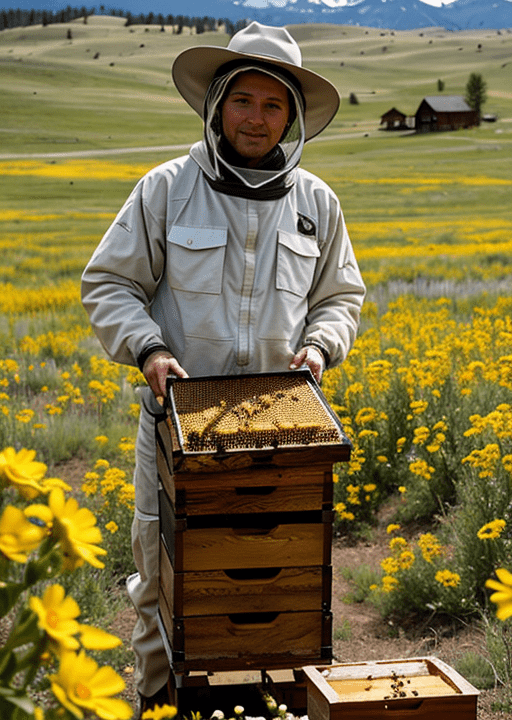
- Yes, we stand by the quality of our products and offer a warranty against manufacturing defects. Additionally, our dedicated customer support team is always ready to assist you with any queries or concerns you may have. Your satisfaction is our top priority.
What kind of protective clothing do I need for beekeeping?
- Beekeepers should have protective clothing such as bee suits and veils to protect themselves from bee stings during hive inspections and honey harvesting.
How can I protect my beehives from extreme weather conditions in Wyoming?
- Wyoming experiences varying weather conditions, including cold winters and hot summers. To protect your beehives, consider insulating them during winter with hive wraps or Styrofoam insulation. For hot summers, provide adequate shade and ventilation to prevent overheating.
What should I look for in a beekeeping supplier?
- When you are looking for the best beekeeping supplies in Wyoming, it is important to keep a few things in mind. First of all, you want to make sure that the beekeeping supplies you purchase are of the highest quality. It is also important to make sure that you are buying supplies from a reputable beekeeping supplier.
- Lastly, you should consider the price of the beekeeping supplies, as well as the return policy of the beekeeping supplier.
